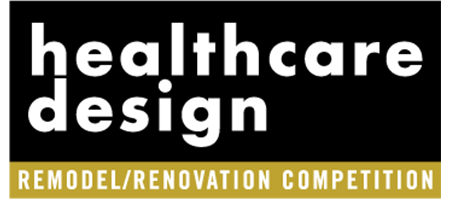Two years after the murder of George Floyd in Minneapolis and the growing acknowledgment of systemic racism in the U.S., many of us are asking: “What can we do? Can we make a difference through design?”
The problems are rooted in more than what and how we design; it’s also who is designing. The architects and designers in the healthcare industry are rarely representative of the groups being impacted by injustice. According to recent National Council of Architectural Registration Boards (NCARB) data, only 2 percent of architects in the U.S. identify as Black or African American. The percentage of Black female architects is even less.
We have to think about just healthcare design not only as the product, but as a process and as a profession. Successful diversity, equity, and inclusion (DEI) efforts in design must be a part of everything we do, and not as a silo within an organization.
At The Center for Health Design, our Just Health Design taskforce aims to integrate DEI initiatives into every project, meaning we are using a DEI lens when looking at the programs we create and the industry experts who lead them to more closely reflect the diversity of the world around us.
For example, a recent webinar in our “Voices of the Industry” series focused on DEI and design insights. This program, “Equity in Health and Wellness: The Power of Design for People and Communities,” featured four unique voices working at the intersection of healthcare and design to solve disparities in healthcare access, delivery, and opportunity. In case you missed it, it’s available free and on demand on our website.
We’re seeing other such efforts to expand diversity in the profession, too. For example, in 2021, Perkins&Will and the American Institute of Architects developed a best practice resource for firms committed to DEI. This white paper, “Creating a Culture of Justice, Equity, Diversity, and Inclusion in Your Architectural Practice,” outlines several key strategies as a starting point to help firms find their footing.
Additionally, at the 2021 Healthcare Design Conference + Expo, we heard speaker Frank Zilm’s call to action: for all firms and organizations in the room to consider how to take a concrete step toward addressing the lack of diversity in healthcare design. Zilm, the Chester Dean Lecturer on Healthcare Design at the University of Kansas School of Architecture, Design, and Planning, suggested that if every firm in the room sponsored a diversity scholarship, we could start to see real change in the healthcare design industry.
We still have a long way to go, but it’s truly inspiring to see the incremental changes moving the industry and the profession forward and closer to a more just, equitable future.
Melissa Piatkowski is research associate at The Center for Health Design. She can be reached at [email protected].











